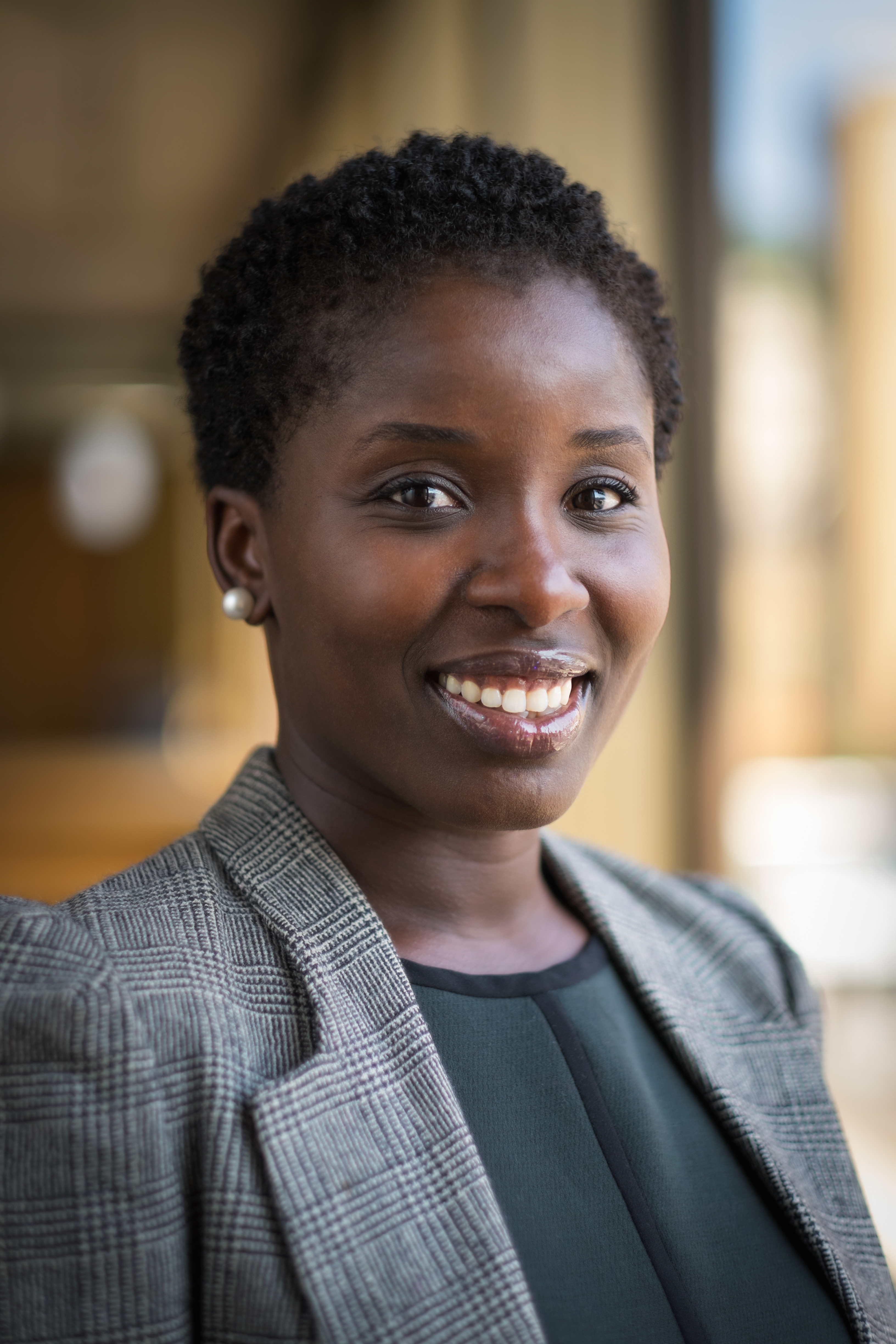October 17, 2016, 3:30-5:30 — Osgoode Hall Law School (Ignat Kaneff Building), Room 2027
To kick off the 2016-2017 academic year, the International Law in the Global South Research Seminar Series hosted Professor Matiangai Sirleaf on October 17, 2016, who delivered a fascinating presentation entitled “The Malabo Protocol and International Criminal Justice in Africa“. The seminar was well attended by a diverse audience, and the post-seminar discussion saw a fruitful exchange of ideas among all participants. 
Matiangai Sirleaf is an Assistant Professor of Law at the University Pittsburgh Law School. Her scholarly work asks how institutions can more systematically address the challenges of providing redress for survivors of mass violence in resource-constrained contexts. Her work draws on insights from the fields of international law and human rights, as well as criminal law. Her most recent publication is Regionalism, Regime Complexes and International Criminal Justice in Africa 54 Colum. J. Transnat’l L. 699 (2016). She is a graduate of Yale Law School. Prior to law school, she earned an M.A. in International Affairs, from the University of Ghana-Legon while on a Fulbright Fellowship. Matiangai’s practice experience includes serving as counsel in the International Human Rights Practice Group at Cohen Milstein, where she assisted with numerous cutting-edge international human rights cases, representing victims of human trafficking and forced labor, torture, enforced disappearance, extrajudicial killing, and arbitrary detention. Prior to this, she worked in South Africa where she clerked on the Constitutional Court for South Africa for former Chief Justice Sandile Ngcobo, taught a course on civic engagement with human rights for the International Human Rights Exchange Programme at the University of Witwatersrand, and worked at the International Center for Transitional Justice in Cape Town, South Africa on a Bernstein Fellowship (a fellowship for selected Yale Law School graduates to engage in full-time human rights advocacy).
Abstract: In June of 2014, the African Union (AU) adopted the Malabo Protocol, which if fifteen states ratify the Protocol, would create a standing regional criminal court. In her forthcoming work The Malabo Protocol and International Criminal Justice in Africa, Sirleaf illuminates the ways in which the Malabo Protocol is building on the experience of international criminal justice in Africa. Although the literature assessing the Malabo Protocol is still in its infancy, what little scholarly analysis that exists has focused on questions of doctrinal compatibility between the Malabo regime and that established by the Rome Statute of the International Criminal Court (ICC). For example, some scholars have focused on the principle of complementarity, and the legality of the proposed regional criminal chamber vis-à-vis the ICC. Conventional wisdom on the Malabo Protocol views it as a negative development that works to insulate the “dictators club” from facing international criminal justice. As a result, most commentators view the Malabo Protocol as a contribution designed to take the field of international criminal justice backwards, and potentially undermine key gains secured by the Rome Statute. Sirleaf takes a different approach, she analyzes how the trivializing assessment of the Protocol that dominates commentary devalues the pioneering and varied approaches to addressing massive human rights violations produced by the African Continent. This work firmly situates the proposed regional court in the transitional and international criminal justice experiences in Africa to date and demonstrates how the Protocol builds on these experiences. Further, Sirleaf contends that the Malabo Protocol offers the Continent an important, alternative vision of supranational criminal justice. She asserts that the Protocol allows us to think more creatively about what the project of transitional and international criminal justice could look like—the types of claims, actors covered, as well as the appropriate levels of adjudication. She concludes that the regional court could arguably tailor criminal accountability to the context, needs, and aspirations of the African Continent.

